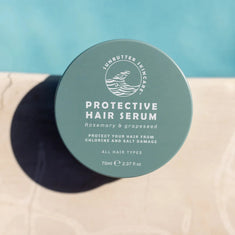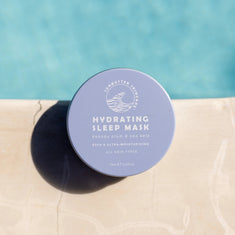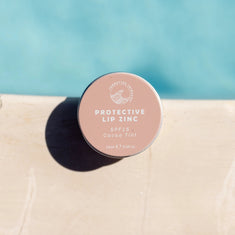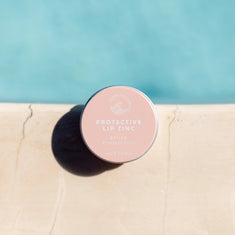The Importance of Vitamin D
Vitamin D
With today’s widespread SunSmart health campaigns on safe and effective UV-blocking practices, it’s easy to forget that sunshine - in moderation - is good for us!
Of course, it’s possible to have too much of a good thing and it’s important to remember that we need to take appropriate measures to protect ourselves against UV damage (skin cancer, sunburn, skin ageing, etc.). However, let’s remember that a little bit of sunshine is essential for our well-being.
In this article, we want to emphasise the amazing benefits of vitamin D, otherwise known as the “Sunshine Vitamin”. Most importantly, we will address how to stay safe in the sun whilst reaping its many benefits.
What is Vitamin D?
Did you know that vitamin D isn’t technically a vitamin? In fact, because our bodies have the ability to produce it themselves, it is actually a hormone. 90% of it is produced in your skin in response to sunlight, whereas the rest is obtained from food sources.
How Do We Make Vitamin D?
Remember those UV rays we’re warned so much about? Well, in moderation, they do also have their uses. You see, vitamin D is created when our skin is exposed to UVB rays. It’s actually our main source of the Sunshine Vitamin!

Once they penetrate our skin, the UV light triggers a chemical reaction. Vitamin D starts off as a biologically inert compound, meaning that it is effectively useless until it undergoes two chemical processes: changing from cholecalciferol to calcidiol and then calcitriol, in your skin, liver and kidney respectively. The end product is then ready to be used by our bodies.
Why Do We Need Vitamin D?
Our DNA has over 2,700 binding sites for calcitriol, suggesting that it plays an important role in numerous bodily functions and vitamin D deficiency has been linked to various diseases. However, the most important health benefit of vitamin D is its role in regulating the minerals calcium and phosphorous and therefore, its ability to promote healthy bones.
What Happens if We Don’t Get Enough Vitamin D?
Bone and muscle pain are common with those that have vitamin D deficiency. However, not every person that lacks the sunshine vitamin will display any obvious symptoms, although, if left untreated, they can go on to experience serious health issues. For example, rickets and osteomalacia are both associated with a deficiency in the Sunshine Vitamin.

How Much Vitamin D Do We Need?
There is some debate over how much vitamin D we need, although scientists generally agree that the minimum desirable level of vitamin D found in the blood is somewhere between 70 and 80 nmol/l.
For most of us however, the above statistic is pretty meaningless, so what does it mean in terms we can adhere to? Well, it is often recommended to spend roughly 10 minutes in the sunshine daily with unprotected skin. No, we’re not suggesting you should run around outside naked, although if that’s your thing don’t hold back, but simply ensuring you have your arms and legs on show should do the trick. Some practitioners even recommend a little bit of sun on the belly as your liver is a hub for producing the Sunshine Vitamin.

However, to complicate matters, there are various factors that could alter the above suggestion, such as skin colour, UV index, amount of exposed skin, sunscreen, etc. Therefore, it’s always best to consult your doctor to ensure that you are getting the right advice tailored towards you.
How Do I Get Enough Vitamin D During the Winter?
During the sunnier and warmer months, your body has the ability to make excess vitamin D and store it in your body fat to use when required. Just make sure you are getting at least 10 minutes of sunshine a day during the summer to store up and it’s still important to get outside as much as possible during the winter months. Many people also use supplements to ensure that they are getting adequate amounts.
Do Australians Get Enough Vitamin D?
Many Australians do not have optimal levels of vitamin D, despite the fact that the amount of sunshine exposure to generate adequate vitamin D is relatively low. Consequently, deficiency is considered a significant public health issue, especially in Southern Australia.
Should I Take Vitamin D Supplements?
Affecting around 1 billion people worldwide, vitamin D deficiency is one of the biggest nutritional problems. Whilst the majority of us can avoid this by ensuring we get regular and moderate sun exposure, there are some that should consider taking supplements.
One way of checking to see if you are deficient is to get your blood tested. However, whilst it is possible to have too much vitamin D, this is difficult to achieve and many studies suggest that supplements are more beneficial than not. Some foods are also fortified with the Sunshine Vitamin and there are some natural sources as well, such as egg yolk and mushrooms.
Stay Safe in the Sun
SunButter heartily promote outdoor activities in order to get that all-important fix of vitamin D! Just remember to stay safe in the sun by following our above guidelines and don’t forget to bring adequate protection, including your SunButter Sunscreen for any prolonged periods of sun exposure.
Check out our article on How to Apply SunButter Sunscreen for some more important advice on when and how to protect yourself from UV exposure.











